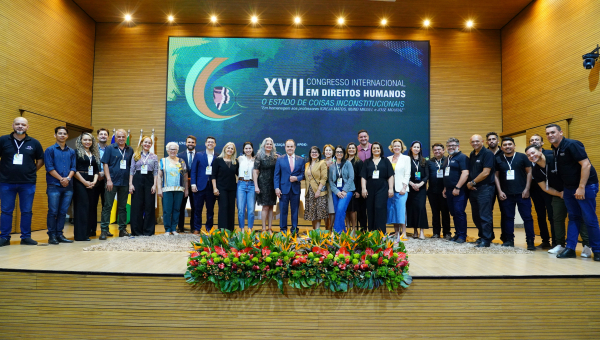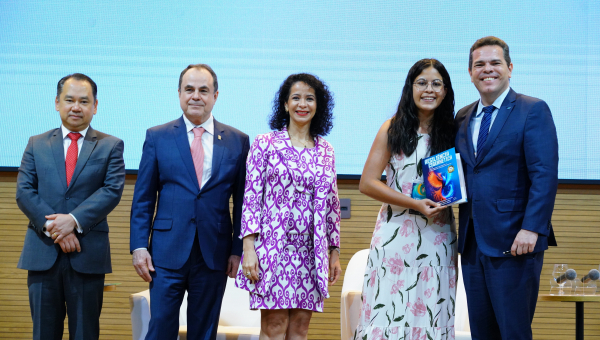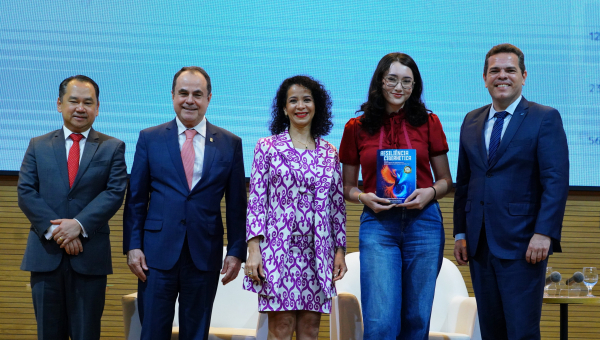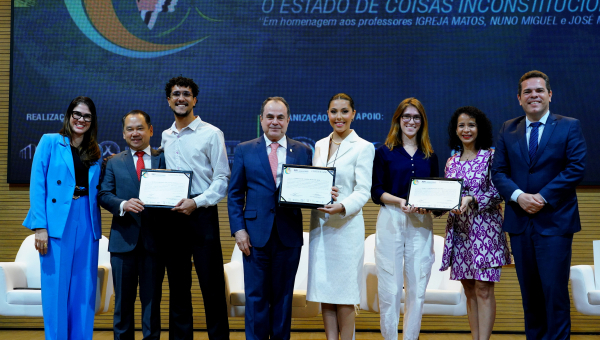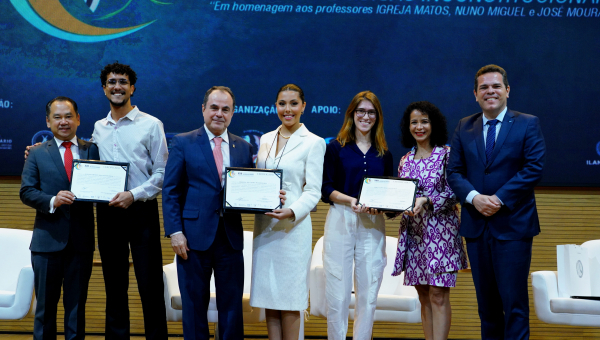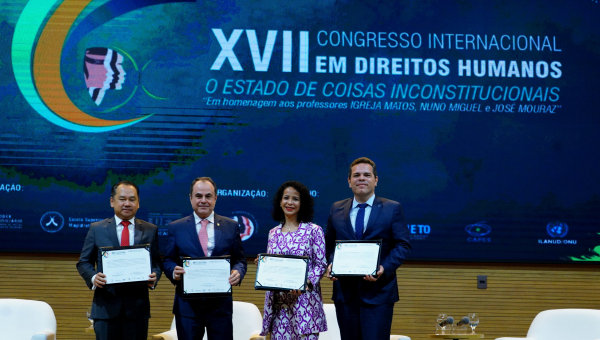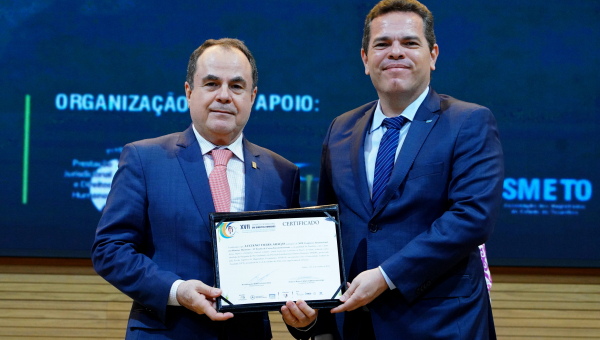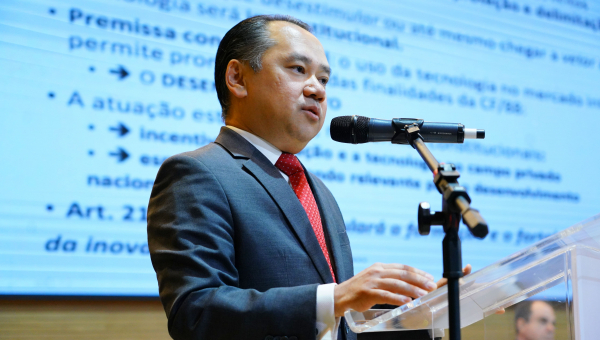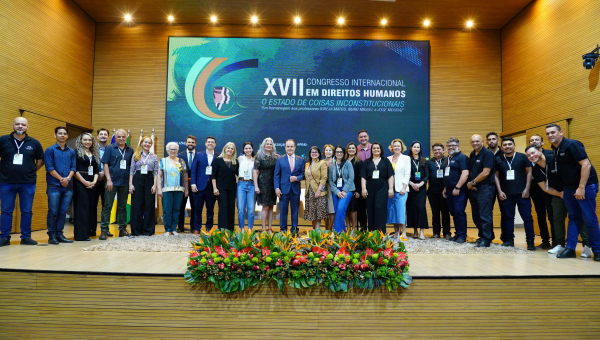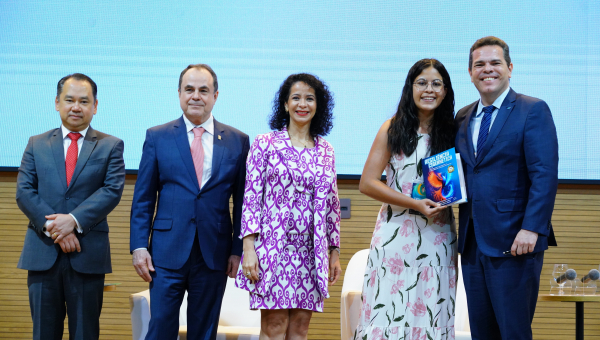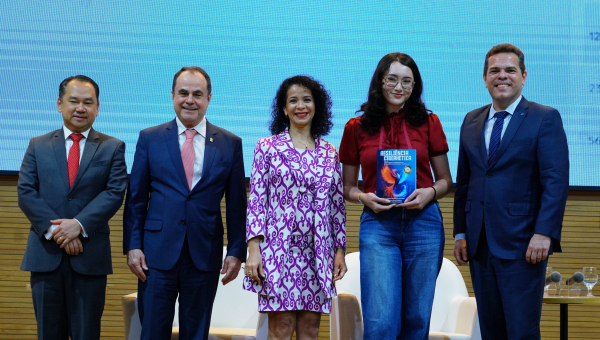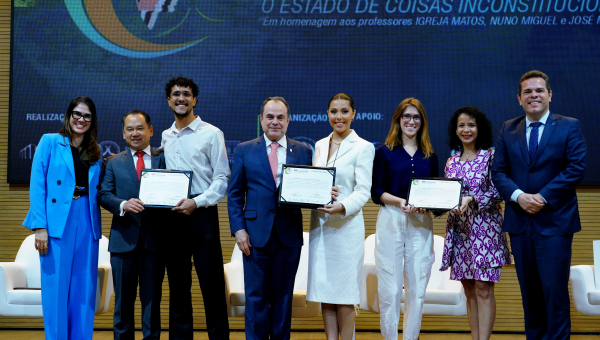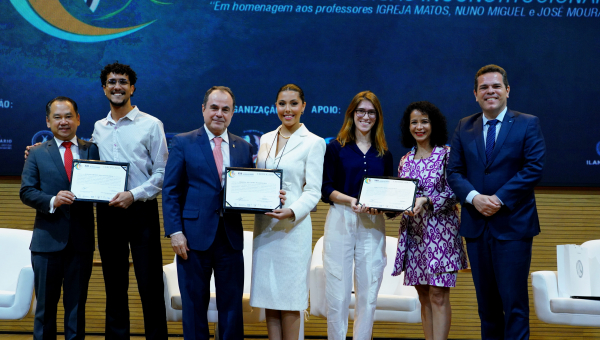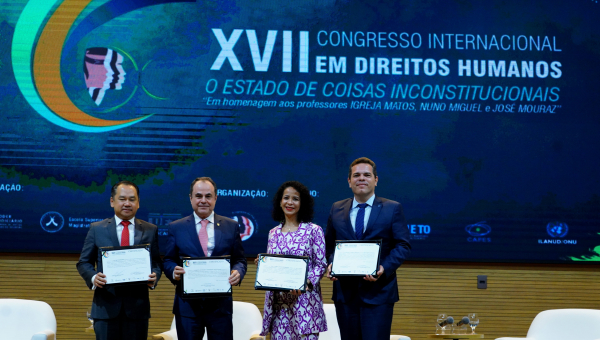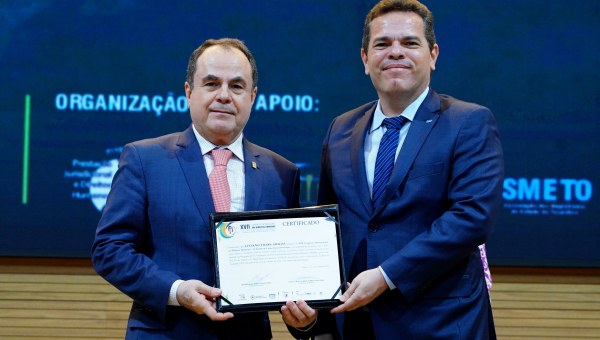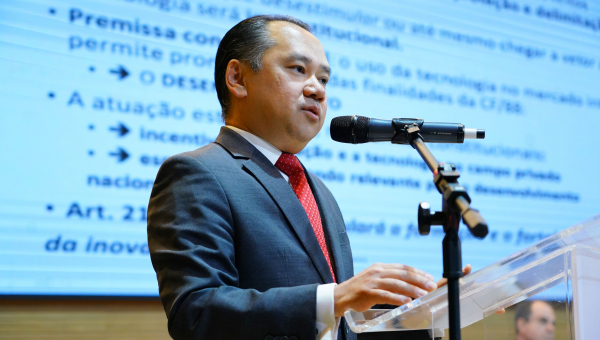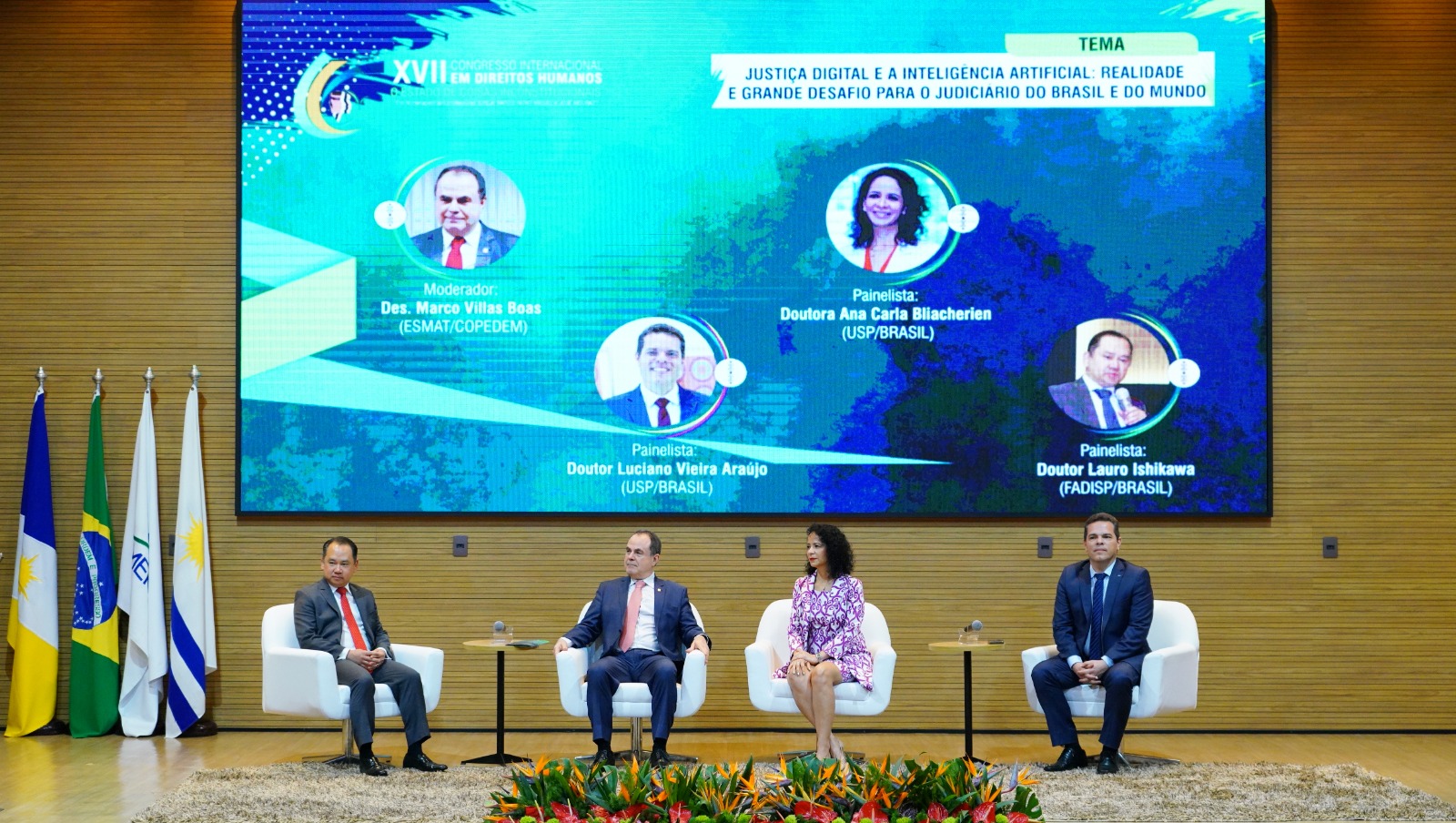
Digital Justice and Artificial Intelligence: Reality and a Great Challenge for the Judiciary in Brazil and the World was the theme of the panel that closed the debates on Friday afternoon (October 4th) at the 17th edition of the International Congress on Human Rights. The programming included the participation of Doctors Ana Carla Bliacheriene, Luciano Vieira de Araújo and Lauro Ishikawa, from the State of São Paulo.
Professor Ana Carla highlighted the importance of integrating Artificial Intelligence (AI) in the search for human dignity in the justice system. She emphasized that digital justice and AI not only represent an emerging reality, but also a significant challenge for the provision of justice. The Court of Justice of the State of Tocantins was presented as an innovative space that seeks a faster and more transparent jurisdiction through the use of advanced technologies.
The panelist defined Artificial Intelligence (AI) as a simulation of human abilities by machines that use algorithms and data to perform tasks involving reasoning, pattern recognition and decision-making. She stressed that this technology offers new possibilities for the functioning of the judiciary, allowing for personalization that can be advantageous when dealing with the specifics of each case. 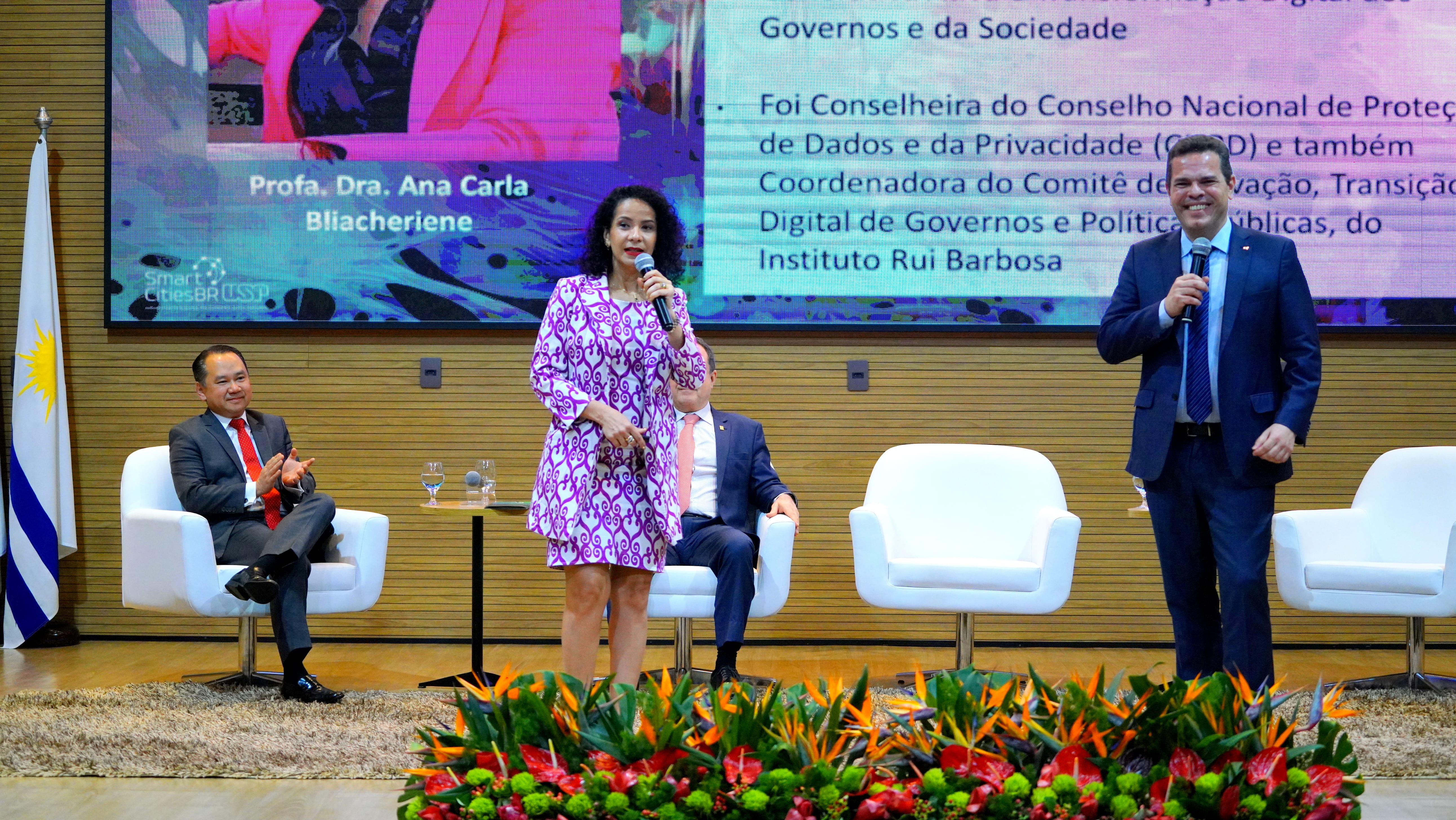
“Generative AI should not be seen as a replacement for civil servers, but as a support that improves the efficiency and effectiveness of judicial work,” she said.
The Horus Project has also gained prominence as an example of the use of technology to optimize processes and bring innovative solutions. Carried out in recent months by the Superior School of the Judges of the State of Tocantins (Esmat), in partnership with the University of the State of São Paulo (USP) and Taqui Startup, the project involves courses and workshops focused on the use of Generative AI in the Judiciary. This collaboration has made it possible to use artificial intelligence to process large volumes of information, increasing the efficiency and effectiveness of the judicial system.
The AI called SARA, which is already being highlighted in the Judiciary of the State of Tocantins, was presented as a differentiator for the Court, offering large-scale analysis, flow automation and customization capacity for magistrates, as well as guaranteeing security, traceability and auditing. The challenges related to agility in the judicial process and the need for courage to innovate were emphasized, with a focus on the prudent use of technology, respecting ethical limits and transparency.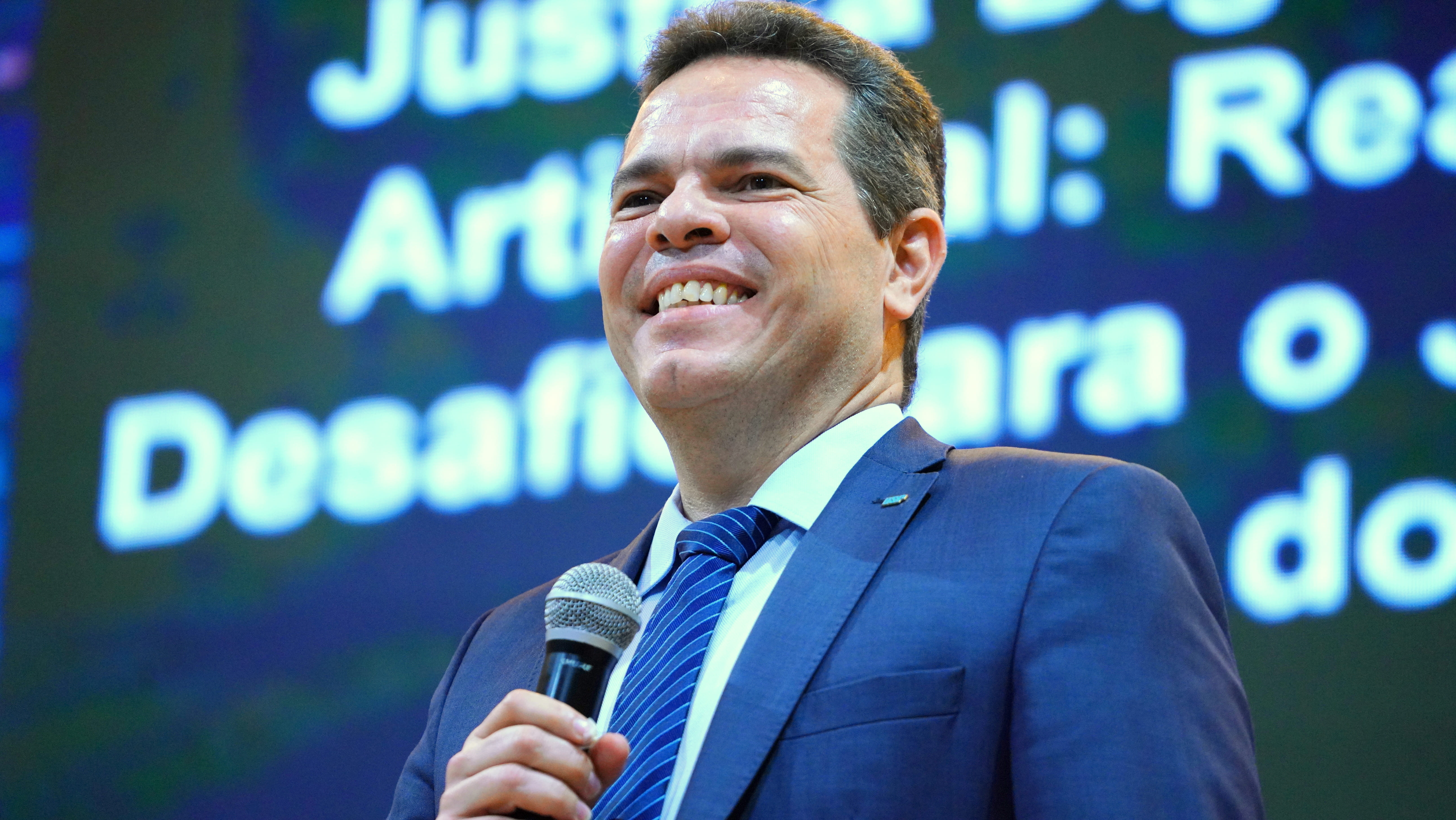
Professor Luciano Vieira de Araújo then shared his perspective on the application of Artificial Intelligence in the Judiciary. He emphasized the importance of understanding the limitations and potential of this technology, stressing that the implementation of AI systems must be guided by ethical principles and the search for justice.
“We are living in a unique moment in which technology can transform the way justice is administered. However, we must be careful that technology does not become a substitute for human judgment, but rather a tool that enables the magistrate to devote more time to the essential issues of the case, allowing for a deeper analysis and a fairer decision,” he said.
Continuing the debate, Dr. Lauro Ishikawa addressed the right to a free technological market, stressing the importance of creating and using technology for lawful economic purposes within a constitutionally protected space. He warned that any legislation that discourages or prohibits the use of technology could be considered unconstitutional, reaffirming that the use of technology must promote national and regional development, as set out in the article 219 of the Federal Constitution.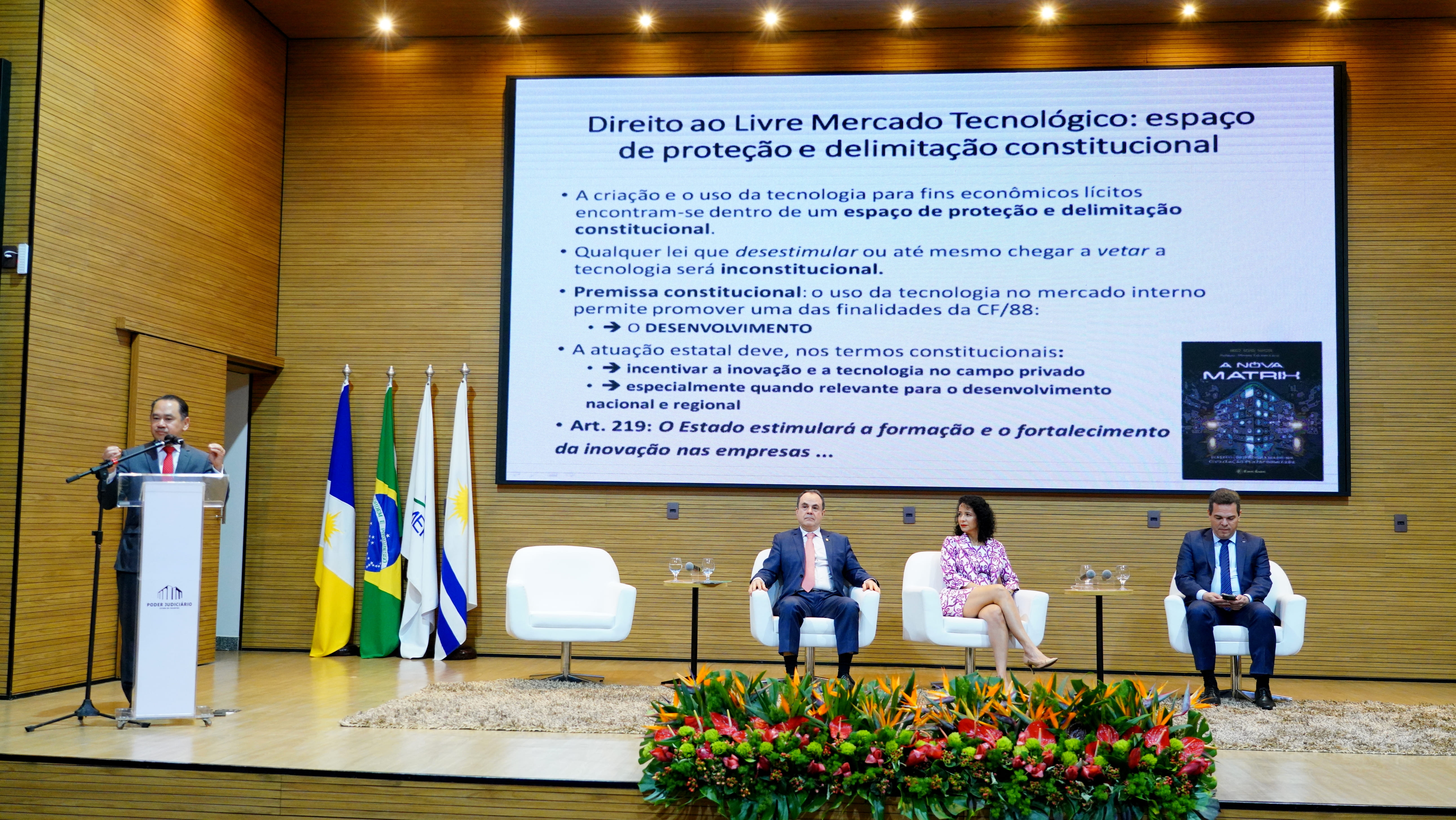
Justice Marco Villas Boas, General Director of Esmat and mediator of the panel, pointed out that Artificial Intelligence represents a significant challenge for the Judiciary. He emphasized the importance of guaranteeing fundamental rights and putting technology at the service of society, promoting respect for human dignity.
At the end of the presentations, the lecturers were honored in recognition of their contributions on improving the justice system. The tribute was presented by Justice Marco Villas Boas.




